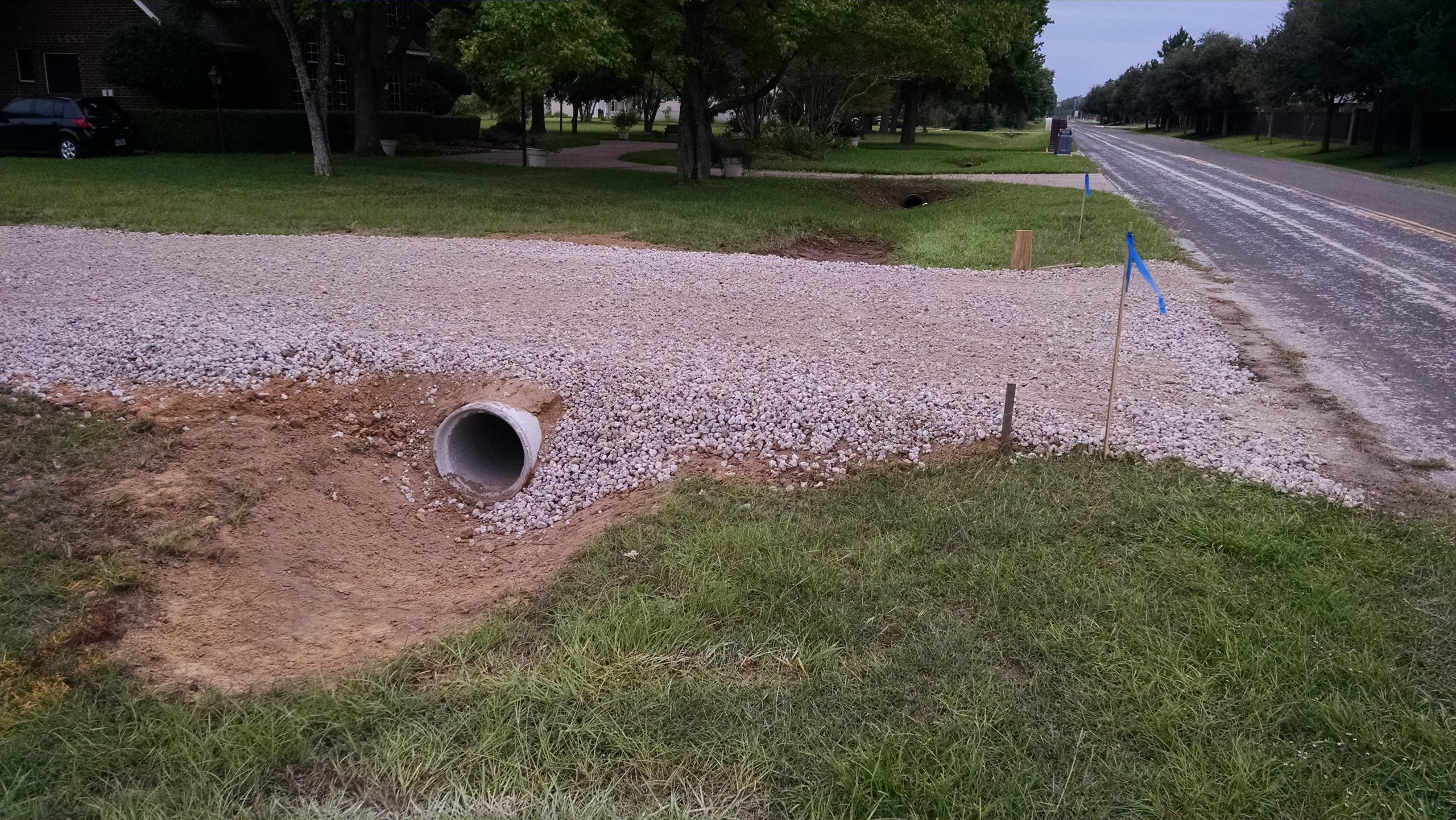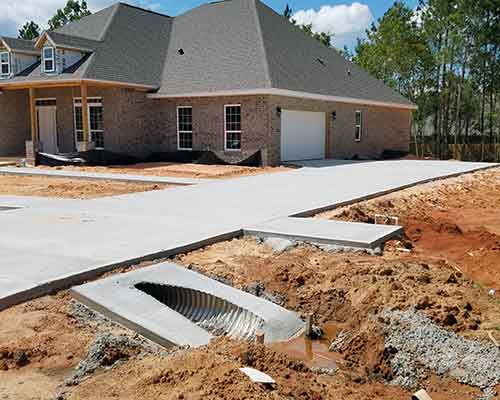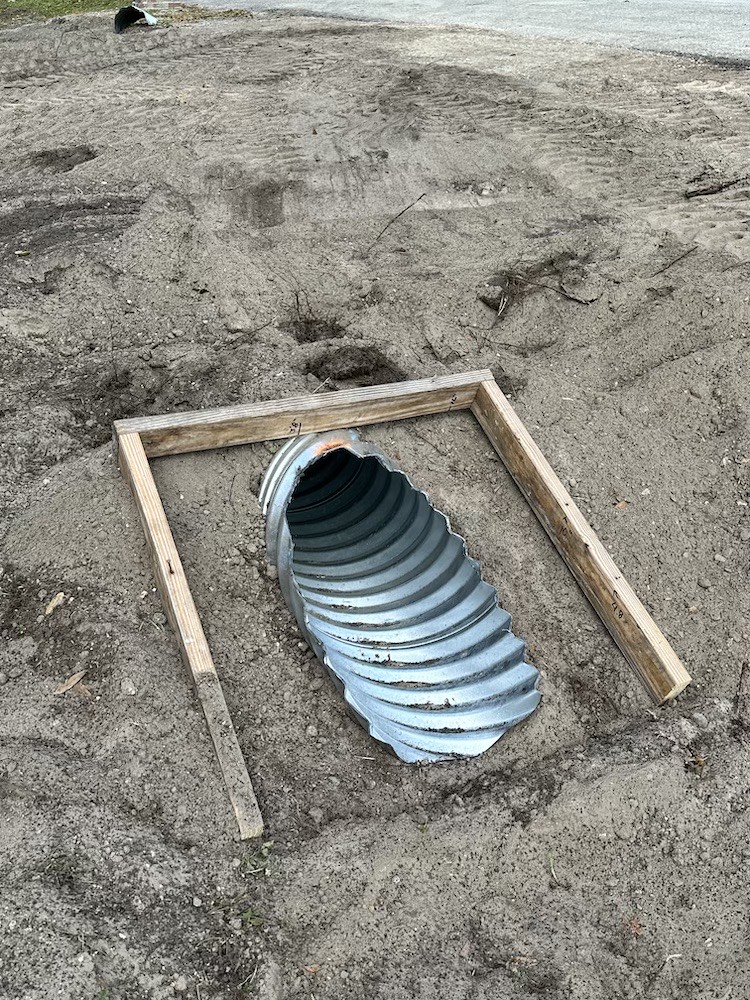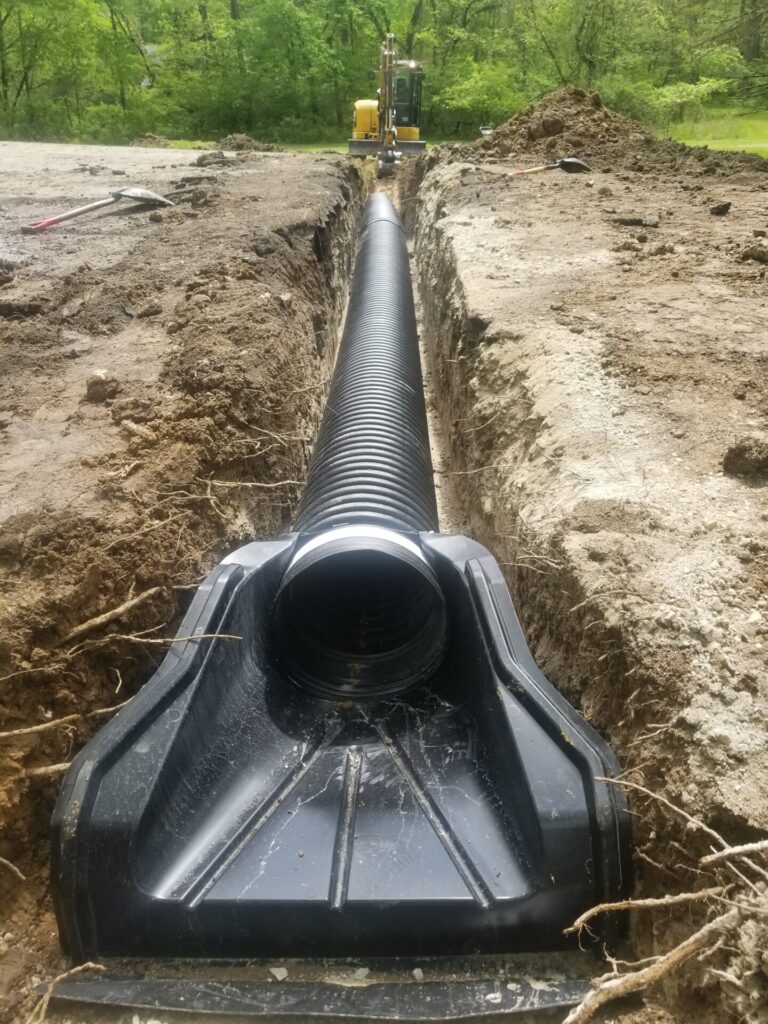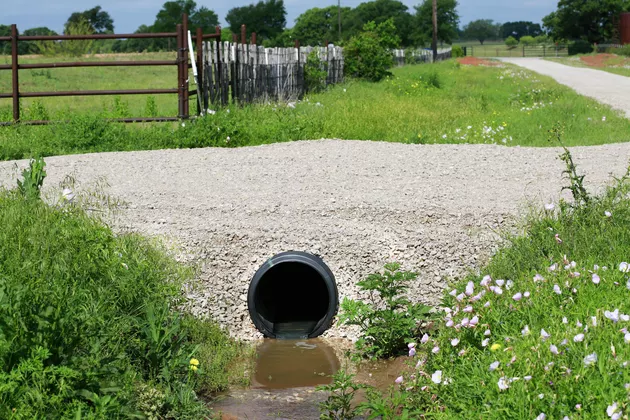Driveway Culvert Information
Driveway Culverts: Essential Guide
What is a Culvert?
A culvert is a structure that allows water to flow under a road, railroad, trail, or similar obstruction. Driveway culverts specifically are used to manage water flow under driveways, preventing flooding and erosion by directing water away from the property.
Steps in Installing a Driveway Culvert
-
Planning and Permits
- Assessment: Evaluate the site to determine the appropriate size and type of culvert needed based on water flow and driveway size.
- Permits: Obtain any necessary permits from local authorities.
-
Excavation
- Marking: Mark the area where the culvert will be installed.
- Digging: Excavate the trench to the required depth, ensuring a slight slope for proper water flow.
-
Base Preparation
- Leveling: Create a stable, leveled base with compacted gravel or sand to support the culvert pipe.
- Geotextile Fabric: Lay down geotextile fabric to prevent soil erosion and increase durability.
-
Culvert Placement
- Positioning: Place the culvert pipe in the trench, ensuring it is centered and aligned correctly.
- Connection: Connect multiple sections of the culvert pipe if needed, securing them with appropriate couplings or sealants.
-
Backfilling
- Covering: Carefully backfill the trench with gravel or soil, compacting it in layers to avoid shifting.
- Surface Layer: Add a final layer of gravel or asphalt to match the driveway surface, ensuring smooth integration.
-
Finishing Touches
- Inspection: Inspect the installation to ensure proper alignment and stability.
- Erosion Control: Implement erosion control measures such as vegetation or rock barriers around the culvert ends.
Types of Culvert Pipes
-
Concrete Culvert Pipes
- Durability: Highly durable and long-lasting.
- Strength: Ideal for heavy traffic and large water flow.
- Installation: Requires machinery due to weight.
-
Plastic (HDPE) Culvert Pipes
- Lightweight: Easier to handle and install.
- Corrosion Resistance: Resistant to rust and chemical corrosion.
- Flexibility: Suitable for areas with soil movement.
-
Metal Culvert Pipes
- Strength: Strong and can handle significant loads.
- Variety: Available in galvanized steel, aluminum, and corrugated metal.
- Lifespan: Requires coatings to prevent rust and extend lifespan.
-
Concrete Box Culverts
- Capacity: Suitable for larger water flows.
- Customizable: Can be pre-cast to specific sizes and shapes.
- Installation: Typically requires professional installation due to size and weight.
Choosing the right type of culvert in the Jacksonville, FL area and following proper installation steps are crucial for maintaining the integrity of your driveway and ensuring effective water management. Whether you opt for concrete, plastic, metal, or box culverts, understanding the installation process will help you achieve a durable and functional driveway culvert system.

